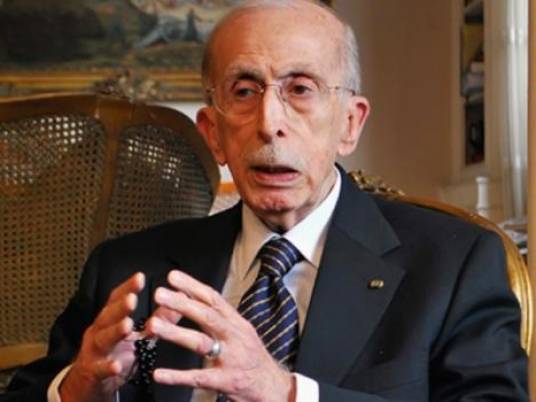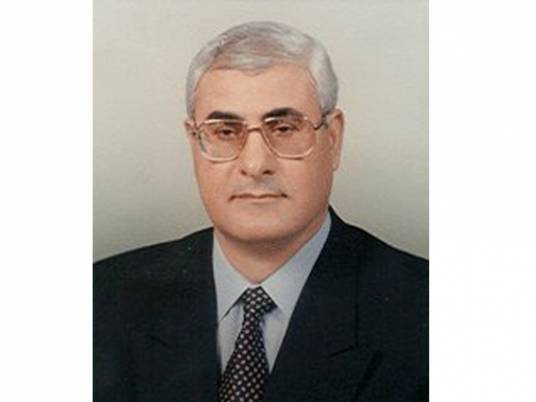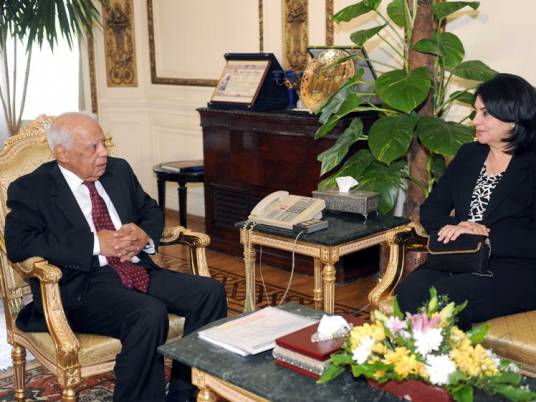Field Marshal Hussein Tantawi, head of the Supreme Council of the Armed Forces, on Monday swore in the Egyptian interim cabinet, headed by Prime Minister Essam Sharaf.
The council has ruled the country since the 11 February ouster of erstwhile President Hosni Mubarak.
The new cabinet includes only three ministers who served under Mubarak. The remaining appointees were chosen in response to the demands of the Egyptian people.
The interim cabinet includes Yehia al-Gamal as deputy PM; Sayed Meshaal as Minister of Military Production; Hassan Younis as Minister of Electricity and Energy; Faiza Abu Naga as Minister of Planning and International Cooperation; Maged George as Minister of Environment; Mohsen al-Nomani as Minister of Local Development; Mohamed Fathi al-Baradei as Minister of Housing and Urban Development; Abdallah al-Husseini as Minister of Religious Endowments; Samir Radwan as Minister of Finance; Ibrahim Manna as Minister of Civil Aviation; Atef Abdel Hamid as Minister of Transport; Hussein al-Atfy as Minister of Water Resources and Irrigation; Ayman Farid Abul Hadid as Minister of Agriculture and Land Reclamation; Amr Ezzat Salama as Minister of Higher Education and Scientific Research; Ahmed Gamal Eddin Moussa as Minister of Education; Maged Othman as Minister of Communications and Information Technology; Ashraf Hatem as Minister of Health and Population; Gouda Abdel Khaleq as Minister of Solidarity and Social Justice; and Samir Sayyad as Minister of Industry and Foreign Trade; Mounir Fakhri Abdel Nour as Minister of Tourism; Mohamed al-Guindi as Minister of Justice; Mansour al-Essawi as Minister of the Interior; Nabil al-Arabi as Minister of Foreign Affairs; Ahmed Hassan al-Borai as Minister of Manpower and Immigration; Emad Abu Ghazi as Minister for Culture; and Mohamed Ghorab as Minister of Petroleum and Mineral Resources.
Egyptian state television reported that Tantawi met with the new cabinet and discussed the return of police to the streets, the preservation of Egypt's water resources, the development of education, and the umbrella improvement of public services.



